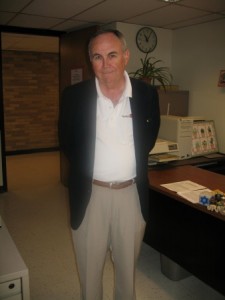 For the next issue of the Journal of Corporate Recruiting Leadership, I asked business, econ, and finance professors what they expect out of the 2009 economy. They weren’t too cheery about the overall economy. But, when it came to the labor market, they suggested what recruiters already know: that the competition for top talent won’t let up much.
For the next issue of the Journal of Corporate Recruiting Leadership, I asked business, econ, and finance professors what they expect out of the 2009 economy. They weren’t too cheery about the overall economy. But, when it came to the labor market, they suggested what recruiters already know: that the competition for top talent won’t let up much.
Here are some excerpts from that upcoming Journal.
From John Worrall, Rutgers University (pictured):
“My back-of-the-envelope guess is the unemployment rate will be North of 7% in 2009. Do I expect it to be at depression levels? No, I don’t.
I think HR managers will be deluding themselves if they think there will be less competition for talent simply because the unemployment rate is high. There’s a temptation to let people go during downturns — the stronger the downturn, the stronger the propensity for layoffs. They would be well-advised to consider carefully how much they have invested not just in key people but across the management spectrum. They’ve invested a ton in training formal and otherwise. That’s gone if they lose those people in a recession. They might not get them back.”
Thomas Cooley, New York University:
“We’re looking at a recession that is probably going to last well into 2009. I think it will be worse than the recessions of 1991 and 2001. How much worse, I don’t think anybody knows at this stage. There are lots of reasons to be concerned it could be as bad as the recession of the early 1980s.
We are going to be going through tough times for HR departments. They are more likely to be shedding employees, rather than acquiring new ones. In the last recession, companies shed workers too quickly and found it difficult and costly to rebuild their workforces. So there’s reason to be a little bit cautious.”
David Smith, Pepperdine University:
“2009 is going to bring higher unemployment, which means from the standpoint of recruiting leaders more of a buyer’s market when it comes to labor. Take sufficient time to make sure you get the right candidates for positions. You can afford to be a little more choosey, picky, at this point. Be as smart as you can so you can in retaining your best and most product employees — those individuals whose intellectual capital is the key to the company’s success.”
James Bennett, George Mason University:
“We’re in for three-to-five years of rocky times, probably the worst economic times since WWII.
Nurses are still going to be hard to find. Truck drivers, not so much. Truck drivers can fairly easily be trained — three months, six months — that’s not a big deal. But nurses – there’s a lot of hands-on instruction that can only be done in small groups. It’s very expensive training.
Being a physician is a pretty good idea. Health care is a pretty good idea. Being a tenured college professor is a pretty good idea.”